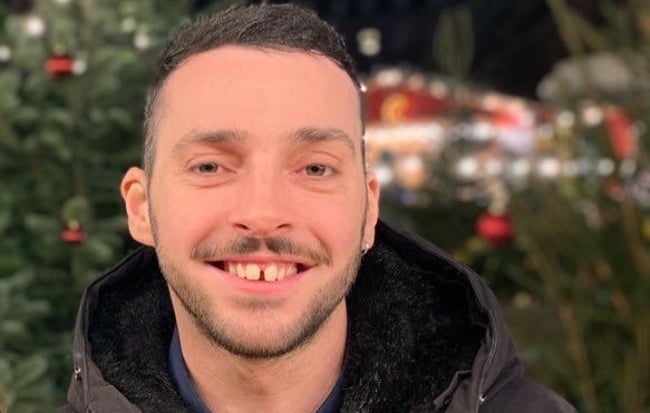

How I learned to accept and love my premature grey hair
Words
Share the article on
A sign of passing time, greying hair often gets a bad rap. As each day brings 31-year-old Gwendal closer to a salt-and-pepper look, he tells us how he has managed to accept and even love his grey hair, despite the way in which others view it.
"For as long as I can remember, my hair has always been very important to me. A bad hair day is inevitably a dreadful day for me. It's impossible to walk in front of a mirror without making sure that my hair is in place. But I've never really worried about grey hair. Before it began to affect me, I saw it as a problem for the elderly. Those around me with grey hair were all incredibly old, so I thought I still had a lot of time ahead of me. I even imagined that I would be bald before going grey."
My first grey hair at 17
"I was in secondary school when I got my first grey hair. I remember it clearly. A friend of mine spotted it and immediately said: "Gwendal, you have a grey hair on the top of your head, do you want me to pull it out?'” I refused to let her touch it, believing that pulling it out would make it grow back twice as long. When I got home, I asked my mother if she could see it. She took a look, and without answering me, plucked it out. Her message was crystal clear: grey hair has to go!”
Between comments made and looks given
"Although my hair continued to turn grey along the sides, I didn’t pay much attention to it. For a long time, I kept my hair quite short and really had to look at myself from the side in a mirror to see the grey patches. In fact, it was really through the eyes of others that I became aware of the changes in my hair colour. People would (and still do) constantly bring up the subject. Now that the sides of my head are completely salt-and-pepper in colour and the top is starting to turn as well, remarks have become almost a daily occurrence, from both close acquaintances to strangers at parties. Once, a hairdresser even offered to dye my hair. People often point to my head and ask me how I feel about my hair going grey, with their tone of voice implying that I suffer from it.”
“A problem for everyone except me”
"Personally, I rapidly put things into perspective. I realized that I had no control over my greying hair and didn't feel the need to hide it. I find hair dyes too expensive and the result not natural enough. Although I’ve never been bothered by my grey hair, it seems to be a problem for everyone else.
In the beginning, I didn't really know how to react to other people’s comments. So, for a long time, I used to respond in a way that I thought was expected of me. I expressed shock and surprise, and convinced myself that it affected me. In reality, that wasn't the case; I simply didn't know how to reply. Over time, I realized it and started using humour, saying that I would end up like George Clooney. Thankfully, he was omnipresent in the media! There's a general consensus that his hair gives him his charm. Nowadays, I tell the truth: I have grey hair and I don't care."
"People need reassurance."
"I understand that having grey hair can bother a lot of people, because they view it as embarrassing. Often, after a explaining how I feel, people seem to be relieved. The conversation goes from 'I couldn't handle it' to 'you're right, it's true.' It's as if they need to be reassured about their own anxieties. Some even admit that they think it suits me well, which I hear more and more often. Besides, in recent years, it has become almost cool to have grey hair.
I must admit, though, that at the end of the first lockdown, after several months without seeing my hairdresser, I was shocked by the amount of grey hair I had. It bothered me a bit. I can't say that I'm eager to have a full head of salt and pepper hair. I'm not at all resigned though. Let's just say that I've had time to prepare for it."
